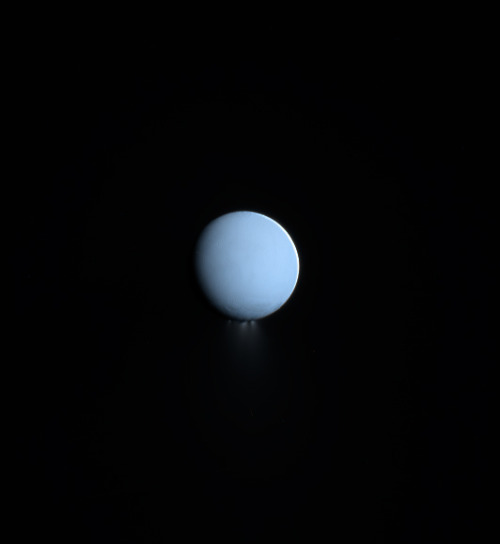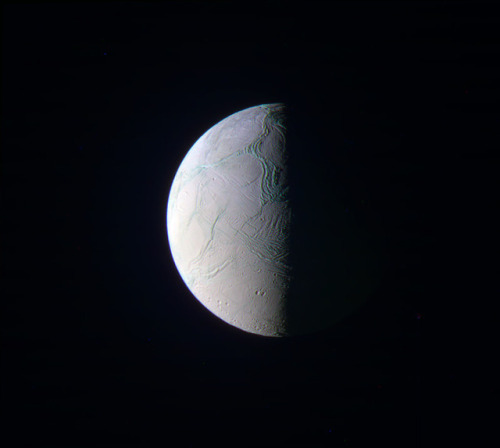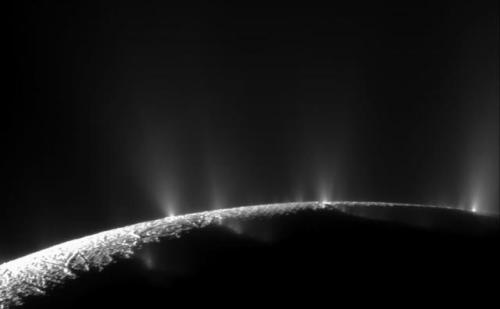The Bubble Nebula By Firemandan666

The Bubble Nebula by firemandan666
★☆★ SPACE ★☆★
More Posts from Sharkspaceengine and Others

Picture of the Day 2 - November 9, 2018
Narrow sea cuts through the forests of a life supporting world with red-colored vegetation.

Picture of the day - November 19, 2018
The sun begins to set behind a large moon of a gas giant that has a thick atmosphere. Another large satellite is visible in the background.






Triangulum Log - Blue Veil System - Post 2 (Inner Giants)
The inner two planets of the system, a hot ice giant and warm gas giant.
The inner planet orbits 0.16 AU from the sun, has a mass 12 times that of Earth and an average atmospheric temperature of 813° F.
The second world is a Saturn-like gas giant with an impressive ring system. It orbits 0.64 AU from the sun, has a mass of 82 Earths, and a single large satellite orbiting it.
High Resolution Images
Image 1 - Inner-most Planet (Hot Ice Giant)
Image 2 - Two Suns in the sky
Image 3 - Stunning Rings
Image 4 - Giant in the sky
Image 5 - Lone Companion
Image 6 - Twin suns against the rings





Pictures of the day - November 28, 2018
Ringed Earth-sized moon with a thin foggy atmosphere.
High Resolution Pictures
Violet Rings
Closeup
Sky
Thin Atmosphere
Crater fog









Enceladus
Enceladus is one of the major inner moons of Saturn along with Dione, Tethys, and Mimas. It orbits Saturn at a distance of 148,000 miles (238,000 km), falling between the orbits of Mimas and Tethys. It is tidally locked with Saturn, keeping the same face toward the planet. It completes one orbit every 32.9 hours within the densest part of Saturn’s E Ring, the outermost of its major rings, and is its main source.
Enceladus is, like many moons in the extensive systems of the giant planets, trapped in an orbital resonance. Its resonance with Dione excites its orbital eccentricity, which is damped by tidal forces, tidally heating its interior, and possibly driving the geological activity.
Enceladus is Saturn’s sixth largest moon, only 157 miles (252 km) in mean radius, but it’s one of the most scientifically compelling bodies in our solar system. Hydrothermal vents spew water vapor and ice particles from an underground ocean beneath the icy crust of Enceladus. This plume of material includes organic compounds, volatile gases, carbon dioxide, carbon monoxide, salts and silica.
With its global ocean, unique chemistry and internal heat, Enceladus has become a promising lead in our search for worlds where life could exist.

In 2005, Cassini’s multiple instruments discovered that this icy outpost is gushing water vapor geysers out to a distance of three times the radius of Enceladus. The icy water particles are roughly one ten-thousandth of an inch, or about the width of a human hair. The particles and gas escape the surface at jet speed at approximately 800 miles per hour (400 meters per second). The eruptions appear to be continuous, refreshing the surface and generating an enormous halo of fine ice dust around Enceladus, which supplies material to one of Saturn’s rings, the E-ring.
Several gases, including water vapor, carbon dioxide, methane, perhaps a little ammonia and either carbon monoxide or nitrogen gas make up the gaseous envelope of the plume.
Read more at: solarsystem.nasa.gov
Image credit: NASA/JPL/Cassini & Kevin Gill

Picture of the day - December 12, 2018
Moon rise over Insight B-V. The second sun is also visible in this pic.

Picture of the Day - January 21, 2019
A ringed Titan under the dim glow of a red sun.

Picture of the day - February 6, 2019 - (Very late post)
Ringed ocean world with greenish-gray colored oceans. The Carina Nebula fills the sky in the background.





Pictures of the day 2 - February 1, 2019 - (very late post)
I decided to try something different this time. I found this large moon orbiting beautiful a blue gas giant and decided to take pictures of the sky overlooking a mountain at different times in the moon's orbit. The only time the moon ever gets dark is during an eclipse, otherwise the reflected light from the gas giant illuminates the surface in a bluish tinted light at night.
Space Engine System ID: RS 0-5-14693-319-17241-6-194958-8 3.1 to visit the moon in Space Engine.
-
 yxcvbnm666 liked this · 6 years ago
yxcvbnm666 liked this · 6 years ago -
 thinkhappierthoughts liked this · 6 years ago
thinkhappierthoughts liked this · 6 years ago -
 verjigorm liked this · 6 years ago
verjigorm liked this · 6 years ago -
 y-not-loki reblogged this · 6 years ago
y-not-loki reblogged this · 6 years ago -
 y-not-loki liked this · 6 years ago
y-not-loki liked this · 6 years ago -
 ashelynx reblogged this · 6 years ago
ashelynx reblogged this · 6 years ago -
 ashelynx liked this · 6 years ago
ashelynx liked this · 6 years ago -
 realtonystark liked this · 6 years ago
realtonystark liked this · 6 years ago -
 amorcitocorazon reblogged this · 6 years ago
amorcitocorazon reblogged this · 6 years ago -
 amorcitocorazon reblogged this · 6 years ago
amorcitocorazon reblogged this · 6 years ago -
 landonstar liked this · 6 years ago
landonstar liked this · 6 years ago -
 lulu-stotts liked this · 6 years ago
lulu-stotts liked this · 6 years ago -
 thefangirldownthestreet liked this · 6 years ago
thefangirldownthestreet liked this · 6 years ago -
 orphansaudio liked this · 6 years ago
orphansaudio liked this · 6 years ago -
 lovato-hollandackles liked this · 6 years ago
lovato-hollandackles liked this · 6 years ago -
 sharkspaceengine reblogged this · 6 years ago
sharkspaceengine reblogged this · 6 years ago -
 sharkspaceengine liked this · 6 years ago
sharkspaceengine liked this · 6 years ago -
 czubaa reblogged this · 6 years ago
czubaa reblogged this · 6 years ago -
 sohcfury liked this · 6 years ago
sohcfury liked this · 6 years ago -
 adamsons-world-blog liked this · 6 years ago
adamsons-world-blog liked this · 6 years ago -
 kleinerfungu-blog liked this · 6 years ago
kleinerfungu-blog liked this · 6 years ago -
 m-zarkel626 liked this · 6 years ago
m-zarkel626 liked this · 6 years ago -
 seoul-galaxy reblogged this · 6 years ago
seoul-galaxy reblogged this · 6 years ago -
 xtinaroz liked this · 6 years ago
xtinaroz liked this · 6 years ago -
 nickcapuchin liked this · 6 years ago
nickcapuchin liked this · 6 years ago -
 wineslacker liked this · 6 years ago
wineslacker liked this · 6 years ago -
 inkwell1991-blog liked this · 6 years ago
inkwell1991-blog liked this · 6 years ago -
 jaunun reblogged this · 6 years ago
jaunun reblogged this · 6 years ago -
 dellabrownunplugged reblogged this · 6 years ago
dellabrownunplugged reblogged this · 6 years ago -
 rigelweiss liked this · 6 years ago
rigelweiss liked this · 6 years ago -
 zuriel9603 liked this · 6 years ago
zuriel9603 liked this · 6 years ago -
 gilbloodborn liked this · 6 years ago
gilbloodborn liked this · 6 years ago -
 monkeybrains8 reblogged this · 6 years ago
monkeybrains8 reblogged this · 6 years ago -
 13z8c5 liked this · 6 years ago
13z8c5 liked this · 6 years ago -
 wildbrokenman reblogged this · 6 years ago
wildbrokenman reblogged this · 6 years ago -
 sameerspiritual liked this · 6 years ago
sameerspiritual liked this · 6 years ago -
 coralaina21-blog liked this · 6 years ago
coralaina21-blog liked this · 6 years ago -
 just-another-starboy liked this · 6 years ago
just-another-starboy liked this · 6 years ago
My Space Engine Adventures, also any space related topic or news. www.spaceengine.org to download space engine. The game is free by the way. Please feel free to ask me anything, provide suggestions on systems to visit or post any space related topic.Check out my other blog https://bunsandsharks.tumblr.com for rabbit and shark blog.
294 posts
![Purple Matter [500 X 750] By Skratt](https://64.media.tumblr.com/51a0374610bfbc488c77e06e4caa581f/tumblr_pfo1ajoUYD1wf4hhqo1_500.jpg)